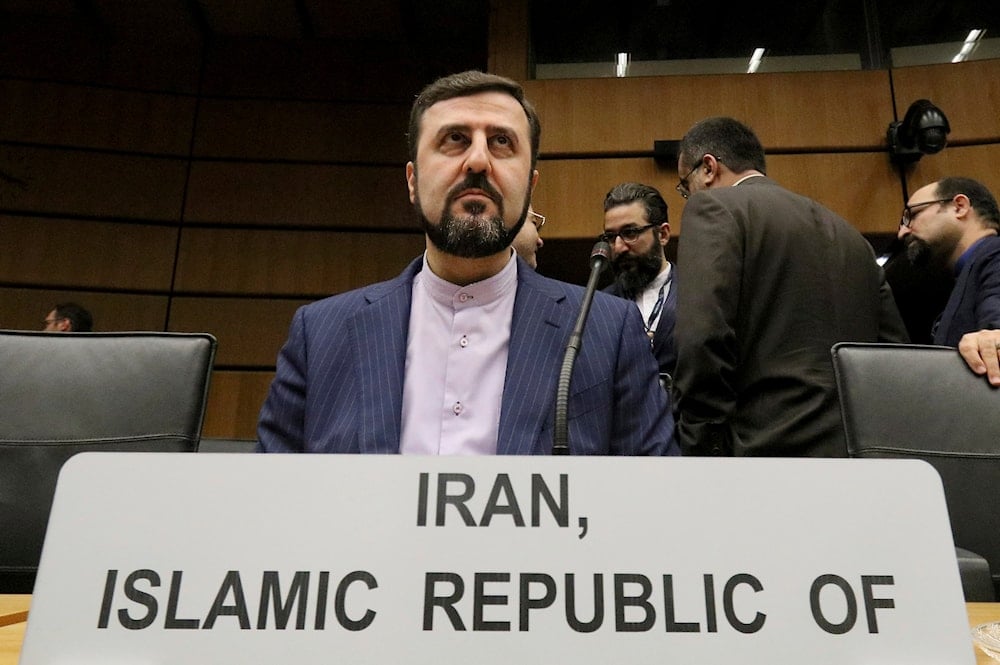Iran says any future talks with US will be indirect
Iran says any future negotiations with the US will be indirect, amid rising tensions after June’s war and ongoing disputes over its nuclear program.
-

In this Thursday, Nov. 21, 2019 photo, Iran's assistant foreign minsiter, Kazem Gharibabadi, waits for the start of the IAEA board of governors meeting at the International Center in Vienna, Austria. (AP)
Iranian Deputy Foreign Minister Kazem Gharibabadi confirmed on Wednesday that any potential future talks between Tehran and Washington will be conducted only through indirect channels.
“But by the way, if there is going to be any new round of negotiations, that would be indirect negotiations,” Gharibabadi stated during a briefing.
On July 21, Iran stated that it has no immediate plans to resume talks with the United States, despite recent comments by US President Donald Trump suggesting Tehran is seeking dialogue over its nuclear program.
The announcement comes just days after Iranian Foreign Minister Abbas Araghchi said on July 18 that talks with the US could only resume if Washington demonstrated readiness for a balanced and mutually beneficial nuclear agreement.
He also urged the E3 countries, Britain, Germany, and France, to abandon threats of renewed international sanctions and to behave responsibly if they wish to remain part of the negotiation process.
Iran has agreed to fresh talks in Istanbul with representatives from the three European signatories to the nuclear deal: France, Germany, and the UK.
Read more: Deal or sanctions: West threaten Iran ahead of August deadline
On Monday evening, Iranian state television confirmed that Tehran agreed to the meeting in response to a European request. The report added that the talks would be held at the level of deputy foreign ministers, with participation from both Gharibabadi and Majid Takht-Ravanchi, Iran's Assistant Foreign Minister for Political Affairs.
Gharibabadi also stated that in the upcoming meeting with the E3 in Istanbul, Tehran will "lay out its stance on activating the snapback mechanism and explore potential solutions to unresolved issues, as well as ways to handle the current situation."
In a Tuesday statement, Gharibabadi reiterated Iran's position that "activating the snapback mechanism is a completely illegal measure," stressing that the other parties "have no legal justification for doing so."
He further stated that the European countries "have no right to hold Iran accountable while they themselves do not comply with the nuclear deal," noting that they "have not implemented it for seven years and suspended their commitments after the US withdrew from it."
Read more: Iran rules out US nuclear talks for now, but keeps diplomacy open

 3 Min Read
3 Min Read










